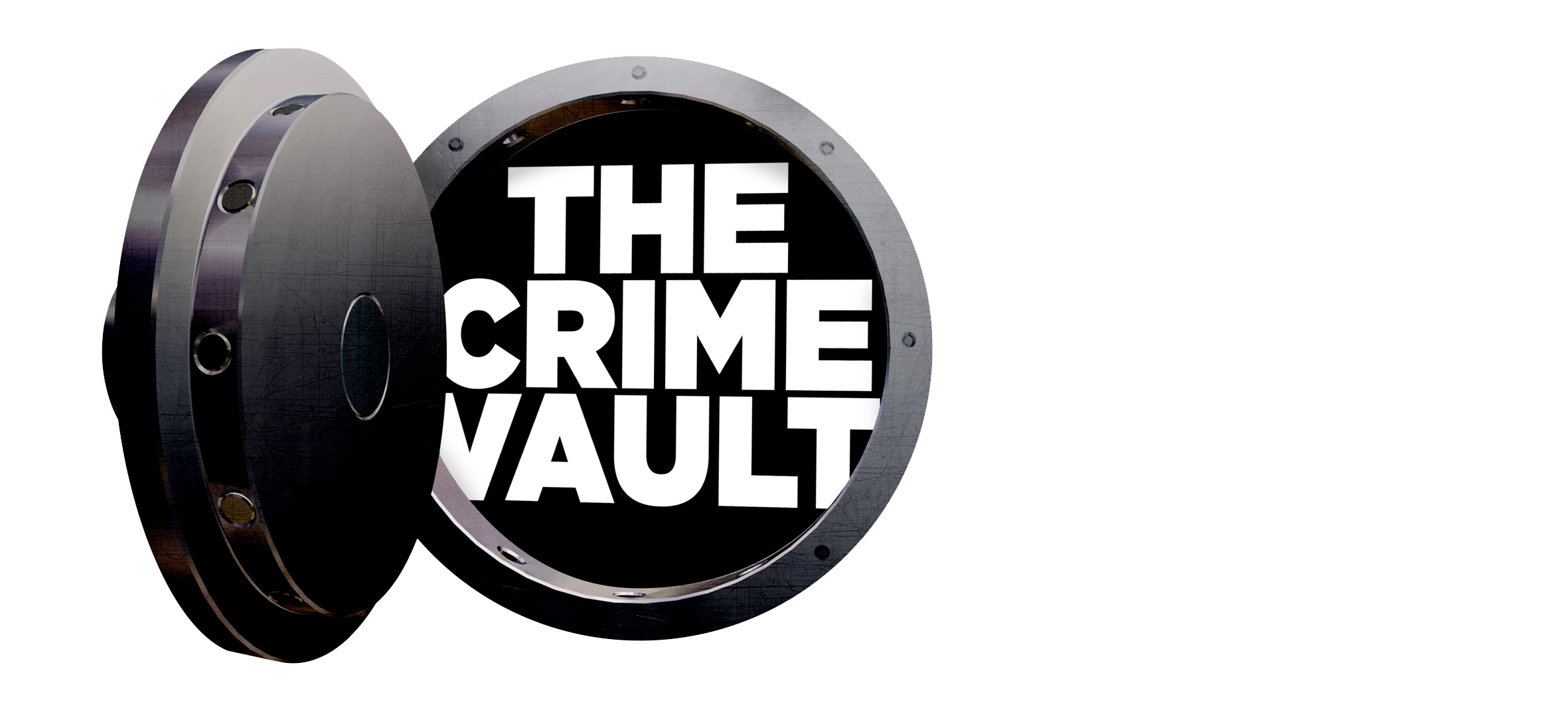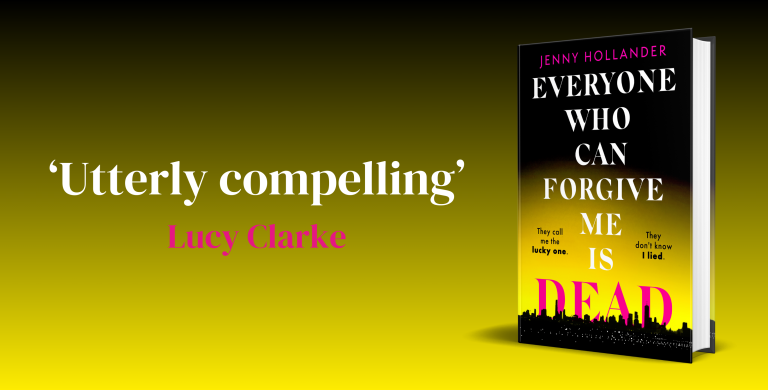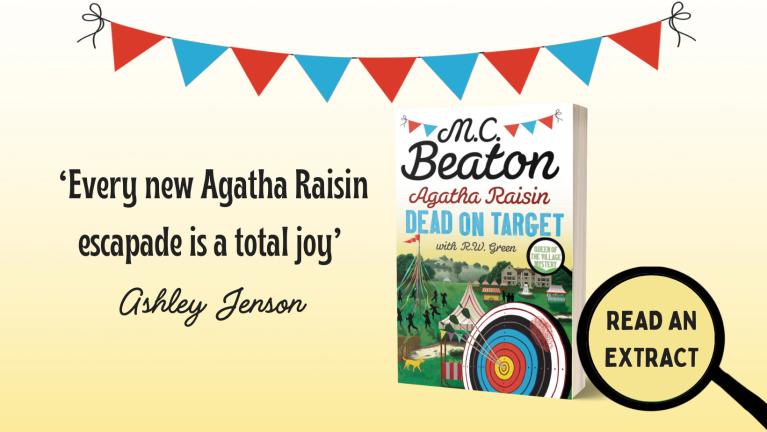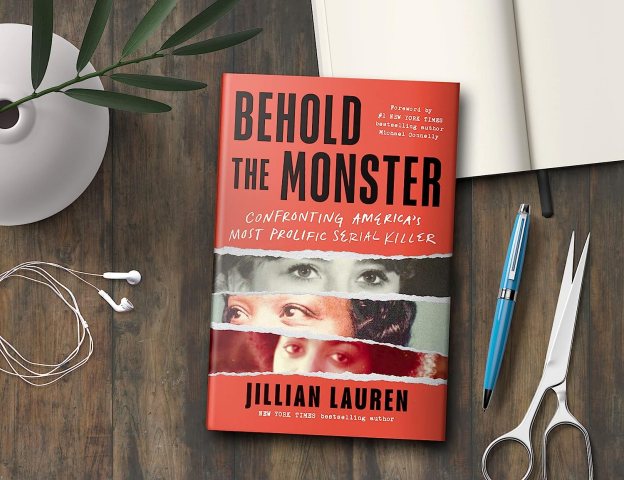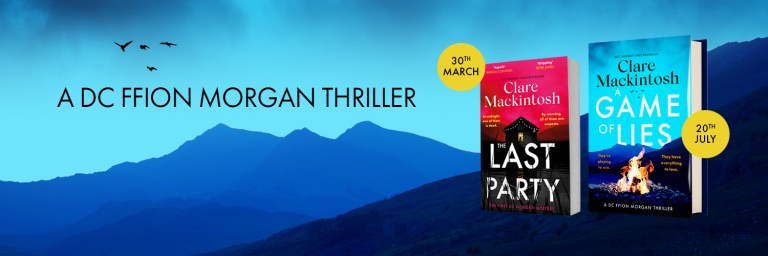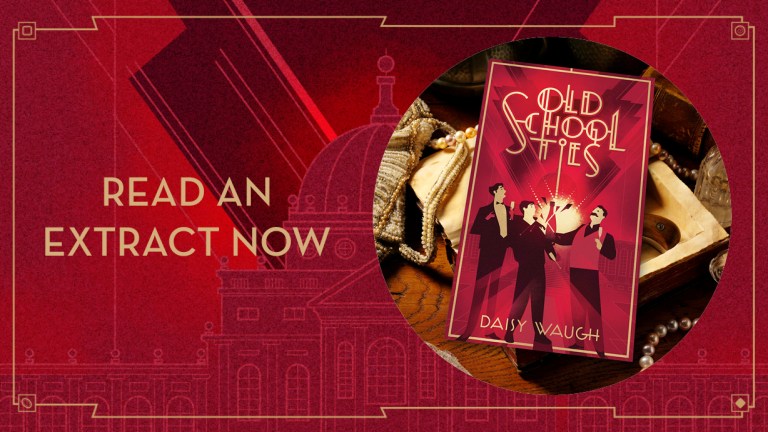Exclusive Extract of Hostage . . .
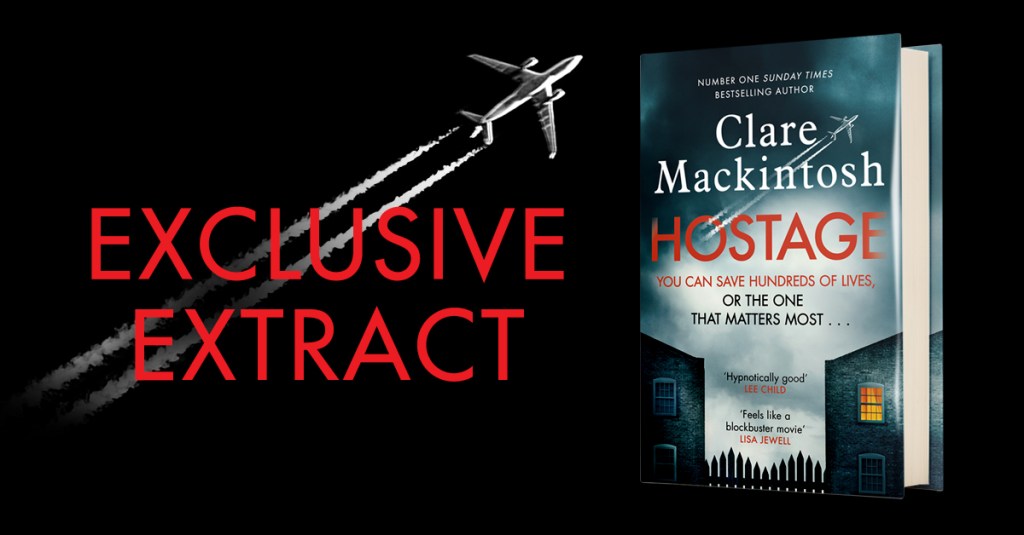
ONE
8.30AM | MINA
‘Stop that, you’ll fall.’
A week’s worth of snow has pressed itself into ice, each day’s danger hidden beneath a night-time dusting of powder. Every few yards my boots travel further than my feet intended, and my stomach pitches, braced for a fall. Our progress is slow, and I wish I’d thought to bring Sophia on the sledge instead.
Reluctantly she opens her eyes, swivelling her head, owl-like, away from the shops, to hide her face in my sleeve. I squeeze her gloved hand. She hates the birds that hang in the butcher’s window, their iridescent neck feathers cruelly at odds with the lifeless eyes they embellish.
I hate the birds too.
Adam says I’ve given the phobia to her, like a cold, or a piece of unwanted jewellery.
‘Where did she get it from, then?’ he said, when I protested. He held out his hands, turning to an invisible crowd, as though the absence of answer proved his point. ‘Not me.’
Of course not. Adam doesn’t have weaknesses.
‘Sainsbury’s,’ Sophia says now, looking back at the shops, now that we are safely past the birds. She still pronounces it thainsbweez, so cute it makes my heart squeeze.
It’s moments like this I treasure; moments like this that make it all worthwhile.
Her breath makes tiny mists in the air. ‘Now the shoe shop. Now the-e-e-e. . .’ She draws out the word, holding the next in her mouth until it’s time. ‘. . . fruit and veg shop,’ she declares, as we draw level with it. Fwoot and veg. God, I love this girl. I do.
The ritual began back in the summer, when Sophia was fizzing with excitement and nerves over starting school, questions tumbling out with every breath. What would her teacher be like? Where would they hang their coats? Would there be plasters if she scraped her knee? And tell me one more time, how do we get there? I’d take her through it again: up the hill, across one road, then another, then on to the high street. Past the bus stop by the secondary school, then along the parade, with the bookshop and the estate agent, and the butcher. Around the corner to Sainsbury’s. To the shoe shop, then the fruit and veg shop, past the police station, up the hill, past the church, and we’re there, I’d tell her.
You have to be patient with Sophia, that’s what Adam struggles with. You have to tell her things again and again. Reassure her that nothing’s changed; that nothing will change.
Adam and I dropped her off together, that first day in September. We took a hand each, swinging her in the middle, as though we were still a proper family, and I was glad to have an excuse for the tears that pricked my eyes.
‘She’ll go off without a second glance, you’ll see,’ Aunty Mo said, seeing my face as we left home. She isn’t an actual aunty, but ‘Mrs Watt’ is too formal for a neighbour who makes hot chocolate and remembers birthdays.
I’d made myself smile back at Mo. ‘I know. Daft, isn’t it?’
Daft to wish Adam still lived with us. Daft to think that day was anything other than role-playing, for Sophia’s sake.
Mo had crouched down to smile at Sophia. ‘You have a good day, now, petal.’
‘My dress is scratchy.’ It came with a scowl Mo managed to miss.
‘That’s nice, dear.’
Mo leaves her hearing aid off to save on the batteries. When I pop round, I have to stand in the flower bed by the lounge window and wave until she sees me. You should have rung the bell! she always says, as though I hadn’t done just that for the last ten minutes.
‘What next?’ I said to Sophia, that first day, as we passed the greengrocer, anxiety bleeding from her fingers to mine.
‘Police station!’ she’d said triumphantly. ‘Daddy’s police station.’
It isn’t where Adam works, but that doesn’t matter to Sophia. Every police car we see is Daddy’s car; every uniformed cop Daddy’s friend.
‘Up the hill next.’
She’d remembered it all. The next day she had added more detail – things I hadn’t seen, hadn’t noticed. A cat on a windowsill, a phone box, a rubbish bin. The commentary became a fixed part of her day, as essential to Sophia as putting on her school uniform in the correct order (top to bottom) or standing flamingo-like as she brushes her teeth, swapping legs as she switches sides. Depending on the day, these rituals either charm me, or make me want to scream. That’s parenting in a nutshell.
Starting school had marked the end of one chapter and the beginning of another, and we’d prepared for the transition by putting Sophia into pre-school last year for three days a week. The rest of the time she’d been with me or Adam, or with Katya, the quietly beautiful au pair who arrived with matching luggage and no English. She spent Wednesday afternoons at language college and topped up her wages stacking shelves at weekends. After six months, she declared us the nicest family in the world, and asked to stay on for another year. I wondered aloud if there was a boyfriend, and Katya’s blushes suggested I was right, although she was coy about who.
I was delighted – and relieved. Adam’s and my working hours made it impossible to rely on a nursery for childcare, and we could never have afforded the nannies that many of my colleagues employed. I had worried it would be intrusive, having a stranger living in, but Katya spent most of her time in her room, Skyping her friends back home. She preferred to eat alone too, despite continued invitations to join us, and she made herself useful around the house, mopping the floor or sorting the laundry, despite my telling her she didn’t have to. ‘You’re here to help with Sophia, and to learn English.’
‘I don’t mind,’ she’d reply. ‘I like to help.’
I came home one day to find several pairs of Adam’s socks on our bed, a neat darn hiding the holes that wear through on the heel of every sock Adam puts on.
‘Where did you learn to do that?’ I could just about sew on a button and take up a hem – albeit wonkily – but darning was proper housewife territory, and Katya wasn’t yet twenty-five.
She shrugged as if it was nothing. ‘My mother learn me.’
‘I honestly don’t know what we’d do without you.’
I’d been able to commit to extra shifts at work, knowing Katya would be here to do the school runs, and Sophia adored her, which was by no means a given. Katya had the patience for endless games of hide-and-seek, Sophia finding more and more elaborate hiding places as time went by.
‘Coming, if you are ready or if you are not!’ Katya would shout, each newly acquired word carefully enunciated, before stalking around the house, looking for her charge.
‘Inside of the shoe cupboard? No . . . How about behind of the bathroom door?’
‘That doesn’t sound very safe,’ I said, when Sophia came charging downstairs to tell me triumphantly that Katya had failed to find her, curled up on a shelf in the airing cupboard. ‘I don’t want you hiding somewhere you might get stuck.’ Sophia had scowled at me, before running off for a rematch with Katya. I let it go. My father chided Adam and me for over-cautious parenting as frequently as I begged him not to be so laissez-faire.
‘She’ll fall,’ I’d say, hardly able to watch as he coaxed Sophia up trees, or across stepping-stones wobbling their way across a stream.
‘That’s how you learn to fly.’
I knew he was right, and I fought my instincts to treat Sophia like a baby. Besides, I could see that she thrived on adventure, and loved the feeling of being treated like a ‘big girl’. Katya had understood that instantly, and the bond between the two of them had grown swiftly. Sophia’s ability to handle change – of people, in particular – continues to be a work in progress, hence my relief when Katya chose to stay on. I had dreaded the fallout from her departure.
It came abruptly in June, just weeks after Katya had asked to stay; weeks after I’d begun to relax. The au pair’s face was blotchy and tearstained, and she’d packed in a hurry, stuffing her suitcase with clothes still damp from the dryer. Was it the boyfriend? She wouldn’t look at me. Something I’d done?
‘I go now,’ was all she’d say.
‘Please, Katya, whatever it is, let’s talk about it.’
She hesitated, then, and I saw her look at Adam. Her eyes were angry and hurt, and I turned just in time to see him shake his head, silently giving instruction.
‘What’s going on?’ I looked at each of them in turn.
Adam had once joked that, in the event of a disagreement between Katya and me, he’d be forced to take the younger woman’s side. ‘A good au pair isn’t easily replaced,’ he said.
‘Funny.’
‘Tell me you wouldn’t do the same.’
I’d given a mock grimace. ‘You got me.’
‘Well?’ I said. They had argued – that was clear – but about what? They had only Sophia in common, unless you counted the crime dramas Adam loved and I hated, the only thing that would lure Katya out of her bedroom on a Saturday evening. If I wasn’t at work I’d go for a run instead, returning after a 10K to catch the dark, moody credits and the tail-end of their critique.
But no one argued about crime dramas.
‘Ask him,’ Katya spat – the only time I’d ever seen her be anything but sunny. A horn beeped outside – her taxi for the airport – and she finally met my gaze. ‘You are nice woman. You not deserve crap like this.’
Something splintered inside me, a tiny fissure at the edge of a frozen lake. I wanted to step back, to leave the ice intact, but it was too late.
Crack.
When she’d gone, I turned to Adam. ‘Well?’
‘Well what?’ He made it a snap, as though my question – my very presence – was an irritation, a nag. As though it were my fault.
I focused on that look I’d seen pass between them; on Katya’s red-rimmed eyes and implied warning. You not deserve crap like this.
‘I’m not stupid, Adam. What’s going on?’
‘With what?’ Again, the faint tut before he spoke, as though his mind were on other, more cerebral matters and I was dragging him back to irrelevance.
‘With Katya.’ I spoke the way some people speak to foreigners. I had the sense that I had stepped into someone else’s life; this wasn’t a conversation I had ever needed to have before, ever thought I’d find myself having.
As he turned away to busy himself with something that didn’t need doing, I caught the flames of guilt licking his neck. Truth slid into my mind like the answer to a crossword clue long after the paper’s been thrown away, and my mouth formed the words I didn’t want to say.
‘You slept with her.’
‘No! God. No! Jesus, Mina – that’s what you think?’
Every bit of me wanted to believe him. He had never before given me cause to doubt him. He loved me. I loved him. I fought to keep my voice steady. ‘What do you expect me to think? There’s obviously something going on between you.’
‘She left Play-Doh all over the kitchen. I had a go at her. She took it personally, that’s all.’
I stared at Adam, at the red-faced bluster of his lie. ‘You could at least have come up with a plausible excuse.’ Not meriting the effort of a cover story hurt almost as much as the lie itself. Did I mean that little to him?
Katya’s departure tore a fissure through our family. Sophia was furious, the sudden loss of her friend a bereavement expressed through smashed toys and torn-up pictures. She blamed me, for no other reason than that I was the one who told her, and it took all my moral fibre not to tell her it was Adam’s fault. He and I circled each other: me bristling and bitter; him taciturn, and filled with faux resentment designed to make me doubt myself. I held fast. If Katya was the crossword puzzle, now that I had solved it I saw that the clues had been anything but cryptic. For months Adam had been cagey about his days off, and protective enough of his phone to take it to the bathroom while he showered. I’d been a fool not to have realised sooner.
‘Up the hill,’ Sophia says now. ‘Then the church, then the—’
My hand tightens too late, Sophia’s fingers disappearing from my grasp as her feet slip from under her, and the back of her head meets the ground. Her eyes widen in shock, then narrow as she assesses how hurt she is, how scared, how embarrassed. I intercept her decision, dropping my bag and swooping her up from the pavement, bumping in my haste against a man walking in the opposite direction.
‘Upsy-daisy!’ I say, in a nanny’s no-nonsense tone.
Sophia looks at me, lower lip quivering indignantly, her dark eyes searching mine for a measure of how bad her fall was. I smile to show it was nothing, and tip up my head to find the shapes in the sky.
‘See the dog? Standing up – see his head, there? And his tail?’
She won’t cry. She never cries. Instead she gets angry, inarticulate screams making it my fault, always my fault. Or she’ll run into the road, to prove something only she understands. That I love her? That I don’t love her?
She follows my gaze. A plane slices through the sky, clipping the clouds that seem solid enough to stop its path.
‘747,’ Sophia says.
I breathe out. The distraction has worked. ‘Nope, that’s an A380. No bump at the front – see?’ I set her gently down, and she shows me her gloves, soaked through from the snow.
‘Poor Sophia. Look, there’s the church – what comes next?’
‘Th-then school.’
‘So we’re nearly there,’ I say, my bright smile a carpet for the mess swept beneath it. My bag – Sophia’s bag, really – has tipped over, its contents spilled on the pavement. I stuff her change of clothes back in and retrieve the water bottle rolling away from us, my daughter’s name playing peekaboo with each rotation.
‘Is this yours?’
The man I bumped into is holding something towards Sophia.
It’s Elephant, his trunk fist-squashed and shiny from five years of love.
‘Give it back!’ Sophia yells, even as she takes a step back, hiding behind me.
‘I’m so sorry.’
‘Don’t worry.’ The man seems unfazed by my daughter’s rudeness. I’m not supposed to apologise for her. It contradicts what she’s feeling, when what she needs is support. But it’s hard to stay silent before raised eyebrows and judgement raining down on you for not teaching your child manners. I take Elephant, and Sophia snatches him from me, burying her face in him.
Elephant came from the house where Sophia spent the first four months of her life. He’s the only thing she has from that time, although nobody knows if he really belonged to Sophia or whether he was scooped up the day she was placed in emergency care. Either way, they’re inseparable now.
She holds Elephant by his trunk until we get to school, where she shows Miss Jessop her wet gloves, and I hang up Sophia’s coat, and put her hat and scarf into her bag. It’s December 17th, and the school hums with anticipation. Cotton-wool snowmen dance across sheets of sugar paper stapled to display boards, and several teachers wear festive earrings, their flashing lobes sending a signal that could be celebration or alarm. The tiled floor is wet, chunks of snow stamped loose at the door then trodden through to the coat pegs.
I take Sophia’s lunchbox and give it to Miss Jessop as I continue to hunt through the contents of the bag. Katya used to empty it at the end of each day, wiping away sticky fingerprints and discreetly recycling the less desirable pieces of artwork. I always mean to do the same, then I sling the bag in the hall each afternoon and don’t think about it until we’re walking to school the next morning.
‘All ready for Christmas?’ Sophia’s teacher is very slight, with smooth skin that could mean mid-twenties or a well-kept thirty. I think of all the duty-free Clarins I’ve bought over the years, and all the skincare routines I’ve started with good intentions, only to go back to wet wipes. I bet Miss Jessop cleanses, tones and moisturises.
‘Sort of.’
There’s a clump of ice clinging to Sophia’s spare jumper, the fabric around it damp and cold. I shake it out, then resume my fruitless hunt through bits of egg carton and empty juice cartons.
‘I can’t find her epi-pen – do you still have the one I gave you?’
‘Yes, don’t worry. It’s in the medicine cabinet, with Sophia’s name on it.’
‘My hairbands are the wrong colour,’ Sophia announces.
Miss Jessop bends to inspect Sophia’s plaits, one secured by a red band and the other with a blue one.
‘They’re very nice hairbands.’
‘I always have two blue ones for school.’
‘Well, I like these ones very much.’ Miss Jessop turns her attention back to me, and I marvel at a teacher’s ability to have the last word, when my own discussions with Sophia over ‘hairbandgate’ had lasted an entire breakfast and most of our walk to school. ‘Don’t forget, we’ve got our Christmas lunch tomorrow, so no packed lunch.’
‘Got it. It’ll be our babysitter picking up today. Becca. You’ve met her before, I think.’
‘No Mr Holbrook?’
I hold her gaze for a moment, wondering if that smile hides something else. Disappointment? Guilt? But her expression is guileless, and I look away, re-folding Sophia’s damp jumper. Damn Adam, for turning me into the sort of paranoid wife I’ve always pitied.
‘He wasn’t sure he’ll be finished work in time, so it was safer to get a babysitter.’
‘Where are you off to today?’
‘Sydney.’
‘On a Boeing 777,’ Sophia says. ‘With 353 passengers. It takes twenty hours to get there, and then they have to come all the way back and that’s another twenty hours, but they stay in a hotel first.’
‘Gosh! How exciting. Will you be away for long?’
‘Five days. Back in time for the holidays.’
‘They have to have four pilots because it’s such a long way, but they don’t all fly at once, they take turns.’
Sophia’s learned the details of all the planes I fly in. There’s a tour of a 747 on YouTube she must have watched a hundred times. She knows it backwards, her lips silently moving in time with the narrator’s. It’s an impressive party trick.
‘Sometimes I find it a bit creepy,’ I told my dad, my smile an afterthought to soften the confession. Adam and I had recently discovered that Sophia had not, as we’d imagined, been reciting the words of her favourite picture books from memory, but was instead reading.
She was three years old.
Dad had laughed. He took off his glasses and rubbed them on the bottom of his shirt. ‘Don’t be daft. She’s a bright girl. She’s destined for great things.’ His eyes glistened, and I had to blink hard myself. He missed Mum as much as I did, but I wondered, too, if he was remembering a time when they used to say that about me.
The psychologist concluded Sophia had hyperlexia, the first positive diagnosis in a sea of acronyms and negative labels. Attachment Disorder. Attention Deficit Disorder. Pathological Demand Avoidance. They don’t put that on the adoption posters.
Adam and I had spent a couple of years trying to conceive. We could have carried on, but the stress was already beginning to get to me, and I could feel myself becoming that woman. The woman who knows exactly when she’s ovulating, who avoids her friends’ baby showers, and commits her savings to cycles of IVF.
‘How much does it cost?’
I was somewhere over the Atlantic, spilling my secrets – some of them, at least – to the colleague I was working with that day. Sian was gently maternal, and we were exchanging life stories by the time the wheels had left the tarmac.
‘Thousands.’
‘Could your parents help out a bit?’ I didn’t tell her about Mum. It was still too raw. As for borrowing money from Dad, after everything that had happened . . . I shook my head and switched tack. ‘It isn’t just the money. I’d become obsessed, I know I would. I already am. I want kids, but I also want to stay sane.’
‘Fat chance of that.’ Sian snorted. ‘I’ve got four, and I’ve lost another set of marbles with each one.’
We were approved to adopt. It took a while, not least because we’d been very clear that we wanted a child under a year old. Adam’s police work had exposed him to some of the worst products of the care system, and neither of us felt we had what it took to handle that. A baby would be easier, we thought.
We were offered Sophia when she was four months old, taken into care from a neglectful mother whose five previous children had gone the same way. The wheels of adoption move slowly, though, and the months when she was with a foster family, and we were without her, were endless. We had to show Social Services we were prepared, but at the same time we were plagued by superstition, Adam going out of his way to walk round ladders and make black cats cross his path. We compromised by filling Sophia’s freshly painted bedroom with everything we needed still in its packaging, ready to go back if anything went wrong.
The court order was granted when Sophia was ten months old, and Adam raced to the recycling centre with a car full of cardboard and plastic packaging. We finally had our family. The movies would have you believe that’s the happy-ever-after. Turns out you have to work a bit harder for that.
Sophia runs off now to join her friends, and I watch her through the glass. Even this far into the term there are still tears from a handful of children as they say goodbye. I wonder if their parents look at Sophia and think lucky mum, just as I look at the kids clinging to their mothers and think the same.
Back home I leave a note for Becca, the sixth-former who looks after Sophia from time to time. I leave a lasagne defrosting, in case Adam’s not back by suppertime, and I dump a clean towel on the spare-room bed, even though he knows full well where the airing cupboard is. It’s hard to break a decade of looking out for someone.
‘Why can’t I just sleep in our bed?’ he said, the first time.
I spoke quietly. Not just because of Sophia, but because I didn’t want it to hurt either of us any more than it had already. ‘Because it isn’t our bed any more, Adam.’ It hadn’t been our bed since the day Katya left.
‘Why are you being like this?’
‘Like what?’
‘So cold. Like we hardly know each other.’ His face crumpled. ‘I love you, Mina.’
I opened my mouth to reply that I no longer felt the same, but I couldn’t bring myself to say it. We tried counselling, of course. For Sophia’s sake, if not ours. Her attachment issues were deep-seated, a muscle memory from the months when crying didn’t summon comfort. What would it do to her if we separated permanently? Sophia was used to Adam working nights – to my being away for several days at a time – but we always, always came home.
Adam was monosyllabic at best, as evasive with the therapist as with me. In July, he agreed to move out.
‘I need time,’ I’d told him.
‘How much time?’
I couldn’t say. I didn’t know. I saw him hesitate over the suitcases, nestled one inside the other like rectangular Russian dolls. Optimism made him pick the smallest. Human Resources found him a room in a house with three police recruits, full of enthusiasm and cheap beer, outdoing each other with their new found uniformed exploits. ‘I can’t have Sophia there,’ he told me. ‘It wouldn’t be right.’
So, I made up the spare bed, and when I go to work Adam stays here, and I don’t know which of us finds it the hardest. I change into my uniform and double-check my carry-on bag. Today’s flight is a big deal. The last non-stop flight from London to Sydney was in 1989 – a PR stunt with twenty people on board. Commercial flights haven’t been possible – it’s taken years to develop an aircraft that can handle the distance with a full passenger load.
I leave a note on Sophia’s bed – a felt-tip heart with love from Mummy underneath; something I’ve done every time I fly, ever since she learned to read.
‘Did you get my note?’ I said once, when I was video-calling to say goodnight. I forget where I was, but the sun was still high, and the sight of Sophia fresh from a bath sent a wave of homesickness through me.
‘What note?’
‘On your bed. I left it on your pillow. Like always.’ Homesickness made me unfair, wanting Sophia to miss me simply because I was missing her.
‘Bye, Mummy. Katya and me are making a den.’ The screen wobbled, and I was left looking at the kitchen ceiling. I ended the call before Katya could feel sorry for me.
I turn up Radio 2 as I head for the airport, but guilt knocks hard enough to make itself heard.
‘People have to work,’ I say out loud. ‘It’s a fact of life.’ I told Adam there’d been a shift change, that I’d tried to get out of it, but I’d be away for five days and what could you do, really? Work was work.
I lied.
